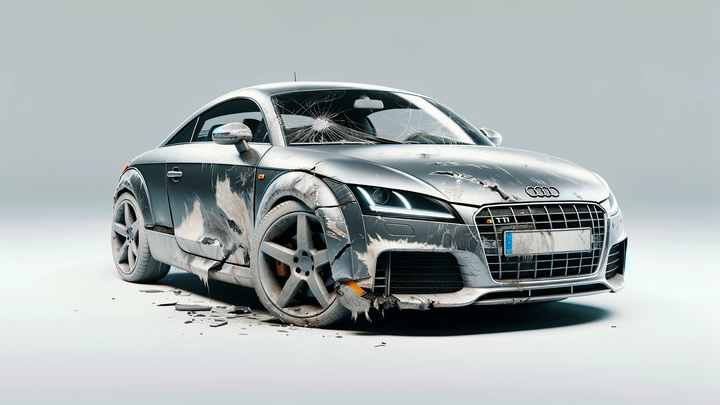Timing chain in cars: Everything you need to know
What is a timing chain and why is it so important?
The timing chain is a crucial component of your car's engine. It ensures the precise synchronization of the engine's camshaft and crankshaft, which is essential for the proper functioning of the pistons and valves. Unlike a timing belt, which is made of rubber, the timing chain is a metal chain designed to last longer and endure more wear.
This blog will cover everything you need to know about timing chains, including their function, when to replace them, and the costs involved.
How does a timing chain work?
The timing chain is responsible for synchronizing the movement of the engine's internal parts. It connects the crankshaft to the camshaft(s), ensuring that the valves open and close in perfect timing with the movement of the pistons. This synchronization is essential for the engine to operate efficiently and prevent damage.
Unlike rubber timing belts, timing chains are made of metal and are typically more durable. However, they are not immune to wear and tear and require maintenance or replacement under certain conditions.
💡 Good to know: Timing chains are usually found in higher-performance engines or vehicles designed for long-term use, as they are generally more reliable than timing belts.
How long does a timing chain last?
Timing chains are designed to last much longer than timing belts, often for the lifetime of the engine. However, they are not indestructible and can fail due to wear, poor maintenance, or manufacturing defects.
Common reasons for timing chain issues:
- Lack of proper lubrication: The timing chain relies on engine oil for lubrication. Low oil levels or dirty oil can accelerate wear.
- High mileage: Even durable chains wear out after prolonged use, especially in high-mileage vehicles.
- Tensioner failure: The timing chain tensioner keeps the chain tight. If it fails, the chain can become loose and skip teeth, disrupting engine timing.
Signs of a failing timing chain
A failing timing chain can cause serious engine damage if not addressed promptly. Here are some common signs to watch for:
- Rattling noise from the engine: A loose or worn timing chain often makes a rattling sound, especially during startup or idle.
- Engine misfires or rough running: If the chain skips a tooth, the engine's timing is disrupted, leading to misfires or rough operation.
- Check engine light: The engine control unit (ECU) may detect timing issues and trigger the check engine light.
- Difficulty starting the car: A worn timing chain may affect the engine's ability to start or run smoothly.
- Oil contamination: Metal shavings in the engine oil can indicate that the timing chain is wearing down.
💡 Good to know: If you notice any of these symptoms, have your vehicle inspected by a professional mechanic immediately. Ignoring timing chain issues can lead to catastrophic engine failure.
Timing chain replacement: What you need to know
Replacing a timing chain is a complex process that requires specialized tools and expertise. The costs can vary significantly depending on the car model and the extent of the damage.
Cost of timing chain replacement:
- Labor costs: Timing chain replacement is labor-intensive and can take several hours. Expect labor costs to range from €500 to €1,500.
- Parts cost: The timing chain itself, along with associated components like tensioners and guides, can cost between €100 and €500.
- Total cost: Depending on the vehicle, a full replacement can cost anywhere from €800 to €2,000 or more.
💡 Tip: Always replace the entire timing chain kit (including tensioners and guides) to avoid future issues.
Can I replace a timing chain myself?
Timing chain replacement is not a DIY-friendly task unless you are an experienced mechanic with the right tools. The process involves:
- Disassembling the engine: The timing chain is located deep within the engine, requiring the removal of multiple components.
- Aligning the timing marks: Proper alignment is critical for the engine to run correctly.
- Installing the new chain and components: The chain must be installed with precise tension to avoid future problems.
⚠️Warning: Incorrect installation can cause severe engine damage. It’s always best to leave this job to a professional mechanic.
What happens if the timing chain breaks?
A broken timing chain can cause significant damage to the engine, including:
- Bent valves: In interference engines, a broken chain can cause the pistons to collide with the valves, bending or breaking them.
- Damaged pistons and cylinders: The chain failure can lead to internal engine damage, requiring costly repairs or a complete engine replacement.
- Engine failure: If the chain breaks while driving, the engine will stop running immediately, leaving you stranded.
💡 Good to know: Regular maintenance and timely replacement can prevent these catastrophic failures.
Preventing timing chain issues
- Regular oil changes: Clean oil is essential for lubricating the timing chain and preventing wear.
- Use high-quality oil: Always use the oil recommended by your vehicle manufacturer.
- Listen for unusual noises: Address any rattling or knocking sounds from the engine promptly.
- Follow the manufacturer’s guidelines: Some car manufacturers recommend inspecting or replacing the timing chain after a certain mileage.
Conclusion: Regular maintenance is key
The timing chain is a vital component of your car’s engine, and neglecting it can lead to costly repairs or even complete engine failure. By staying vigilant and addressing issues early, you can extend the life of your timing chain and your vehicle.
If your timing chain has failed and the repair costs are too high, consider selling your car. Platforms like CashforCars.de offer a quick and hassle-free way to sell your car, even with significant mechanical issues.
Frequently asked questions about timing chains
1. How often should a timing chain be replaced?
Timing chains are designed to last the lifetime of the engine, but they may need replacement after 200,000 kilometers or if symptoms of wear appear.
2. Can I drive with a loose timing chain?
No, a loose timing chain can cause severe engine damage and should be repaired immediately.
3. Is a timing chain better than a timing belt?
Timing chains are generally more durable and require less frequent replacement, but they can be more expensive to repair.
4. How can I tell if my timing chain is worn?
Common signs include engine rattling, misfires, and difficulty starting the car.
Sell your car hassle-free with CashforCars.de 🚗
Do you want to sell your car quickly, easily, and safely? At CashforCars.de, we provide fair offers for all types of vehicles, whether damaged, old, or used.
📞 Phone: +49 (211) 7306 1701 – Call us today!
💬 WhatsApp: Send us a quick message for an instant offer.
📝 Online form: Fill it out from the comfort of your home.
👉 Get your free offer now and sell your car stress-free!






